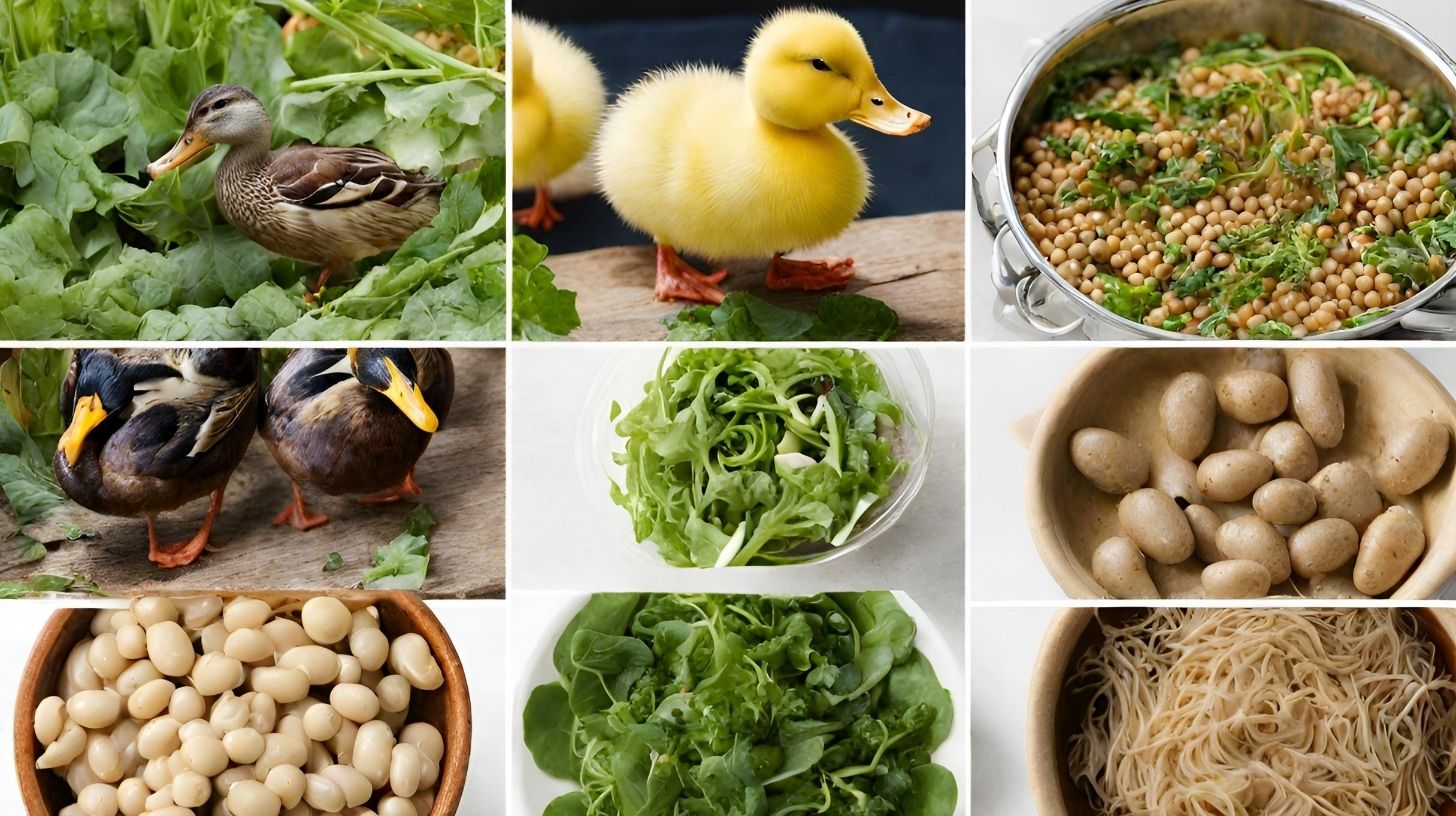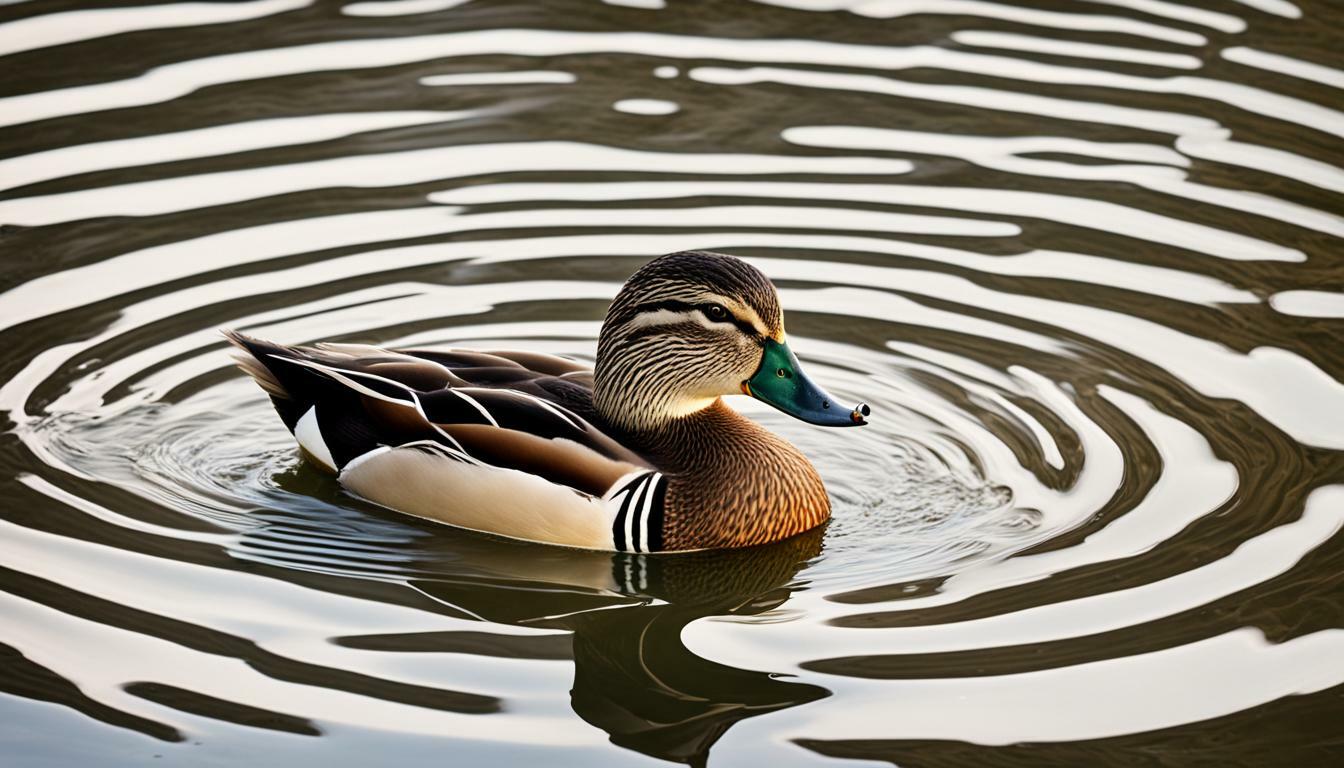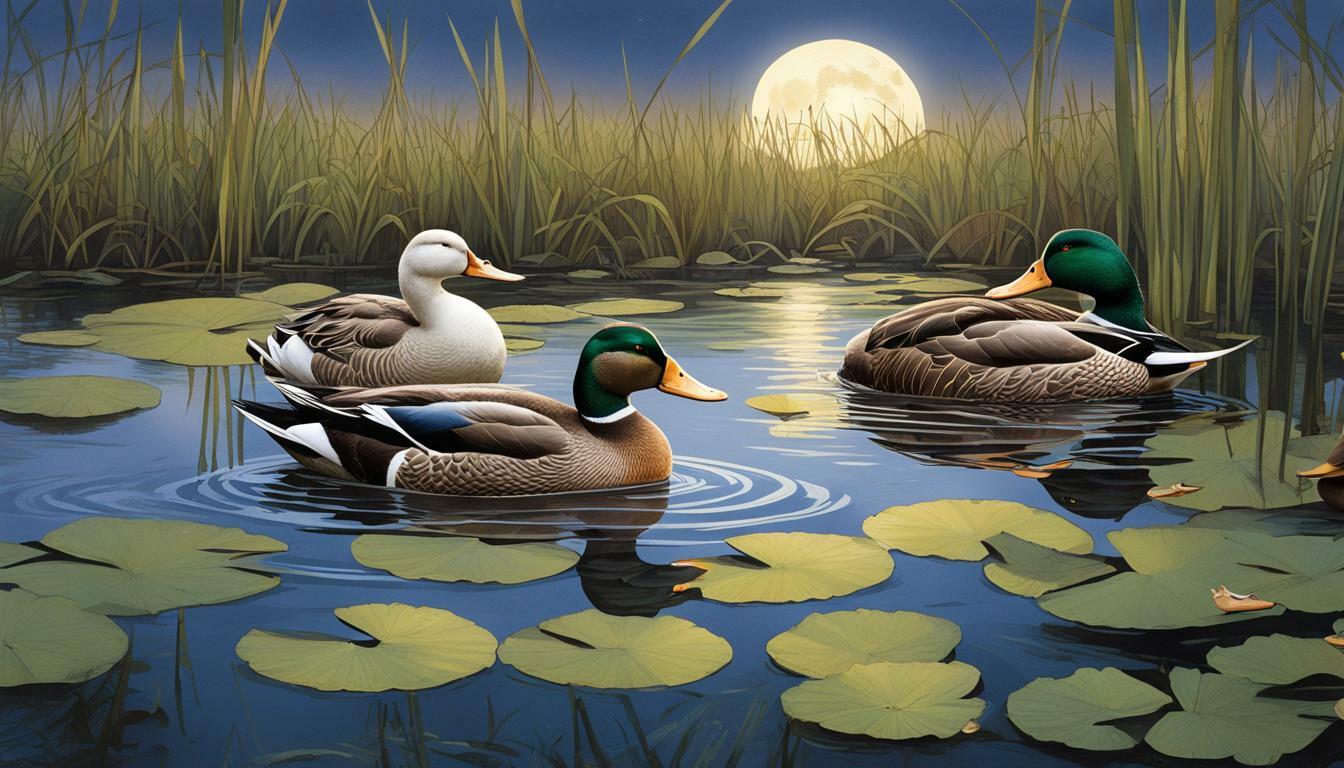Can Ducks Eat Cheerios?

Table of content:
Ducks are commonly found in ponds, lakes, and other waterways where humans like to gather as well. Often times, well-meaning people will offer human foods like bread or cereal to ducks out of convenience. Cheerios is a go-to option since we consider it a “healthy” breakfast cereal. But just because we can eat it, does that mean it’s good for ducks too?
Background on Ducks and Their Diet
Ducks are waterfowl that are members of the Anatidae family, alongside geese and swans. There are over 120 different species of ducks throughout the world, and they inhabit various wetland environments.
In the wild, ducks have a varied diet consisting of aquatic plants, seeds, grains, green vegetation, insects, grubs, slugs, worms, crustaceans, mollusks, tadpoles, small fish and more. They use their specialized bill to filter food from mud and water.
Domestic ducks on farms or as pets generally eat a diet of commercial duck feed that provides pellets with a balanced mix of grains, proteins and nutrients. Their natural diet intake may be supplemented with greens, fruits, vegetables, and treats.
Overall, ducks are opportunistic eaters who adapt to utilize the most readily available food sources in their environment.
Factors to Consider
There are a few important factors to consider before sharing your Cheerios with ducks at the park pond:
Nutritional Content
The nutritional value of any food for ducks will depend on how closely it matches what they’d naturally eat in the wild. Cheerios are processed grains, not their usual diet.
Cheerios do provide some carbohydrates for energy in the form of oats. However, they lack the protein from aquatic plants, insects, and fish that ducks instinctively seek.
Some vitamins and minerals like calcium in Cheerios may benefit ducks. But the cereal won’t provide adequate overall nutrition to sustain them compared to their natural foods.
Risks of Processed Foods
Feeding ducks inappropriate human foods carries risks of digestive issues or poor nutrition. Ducks who fill up on empty calories from processed snacks may ignore sources of healthier food.
A steady diet of dry cereals or breads can also cause calcium deficiencies and a dangerous condition called angel wing deformity. This is where ducks’ wings twist outward due to weakened muscle and bone structure.
Improperly feeding ducks can undermine their natural foraging behavior too. This can make them dependent on humans for inappropriate foods rather than naturally finding their own nourishment.
Wild Ducks vs Pet Ducks
The distinction between wild ducks and domesticated pet ducks matters too. Occasional snack-like treat quantities of Cheerios are safer for supervised pet ducks. But wildlife should not be given any processed human foods.
Hand-feeding wild ducks disrupts their healthy caution around humans. This can encourage aggressive behavior when hoping for more snacks.
What Age Can Ducks Eat Cheerios?
For young ducklings, it’s important their first foods exactly match their unique nutritional needs for healthy development. Ducklings should eat starter feeds with at least 20% protein content, not cereals made for humans.
Adult ducks can safely eat small amounts of plain Cheerios in moderation. But it should only be a minor part of their varied diet. Too many processed grains and sugars can be detrimental to their digestion and health.
For best practice, avoid feeding cereals like Cheerios to wild ducks of any age. If you want to provide snacks for supervised pet ducks, offer healthy alternatives like oats, birdseed, chopped greens, frozen peas or corn, worms, etc.
Can Ducks Eat Cheerios? The Verdict
In summary, here are some key considerations on whether or not ducks can or should eat Cheerios cereal:
- While ducks can physically eat and swallow Cheerios, the nutritional value is extremely limited for ducks. It’s not a natural part of their diet compared to aquatic plants, seeds, and insects.
- Cheerios lack the protein, vitamins, and other nutrients that ducks need from foods like insects, fish, and greens. At best, plain Cheerios offer some carbohydrates for energy.
- Feeding Cheerios from your hand reinforces bad behavior and dependency. Ducks can lose their natural foraging ability and may ignore healthier food options.
- Processed human foods like cereal carry risks of digestive issues, malnutrition, and calcium deficiencies that can cause angel wing.
- Ducklings and wild ducks should never be fed cereal or human foods. Use proper starter feed for ducklings.
- In moderation, plain Cheerios are safer for adult pet ducks than flavored varieties. But they provide minimal nutrition compared to duck-appropriate foods.
The bottom line is ducks can technically eat Cheerios, but should not be given cereals made for humans. While Cheerios won’t immediately harm them, they provide little nutritional benefit. Ducks have specialized nutritional needs different from humans. For their health, it’s best to avoid feeding Cheerios or any human processed foods to ducks. Stick to foods from their natural diet in the wild whenever possible.
Welcome. I’m Adreena Shanum, the proud owner of this website, and I am incredibly passionate about animals, especially poultry. I founded adreenapets.com as a labor of love, stemming from my desire to share my knowledge and experiences with poultry enthusiasts worldwide.




